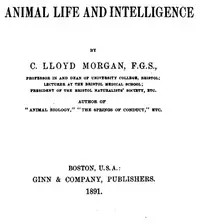"Spencer's Philosophy of Science" by C. Lloyd Morgan is a scientific publication that was delivered as a lecture in the early 20th century, specifically in 1913. The book explores the philosophical contributions of Herbert Spencer to the understanding of science and evolution, emphasizing his theories on the unity of knowledge and the principles that govern progress and differentiation in nature. In this work, Morgan examines and critiques Spencer's ideas, particularly his concept of evolution as a universal principle that applies across various fields including biology, psychology, and sociology. He articulates how Spencer viewed the transformation of homogeneous entities into complex forms as a cardinal law of evolution, supported by the assertion that changes yield multiple effects. However, Morgan also identifies limitations in Spencer's framework, especially concerning the treatment of consciousness and cognition as integral components of evolution. He argues for a more comprehensive, scientific interpretation of these higher forms of relatedness, suggesting that without recognizing the distinct types of relationships that arise in complex systems, such as cognition and life itself, a complete understanding of science and its philosophy cannot be achieved. (This is an automatically generated summary.)

Spencer's Philosophy of Science The Herbert Spencer Lecture Delivered at the Museum 7 November, 1913
By C. Lloyd (Conwy Lloyd) Morgan
"Spencer's Philosophy of Science" by C. Lloyd Morgan is a scientific publication that was delivered as a lecture in the early 20th century, specifical...
Genres
Released
2011-09-23
Formats
epub (images)
mobi (images)
mobi
epub
epub3 (images)
Free Download
Overview
About the Author
Conwy Lloyd Morgan, FRS was a British ethologist and psychologist. He is remembered for his theory of emergent evolution, and for the experimental approach to animal psychology now known as Morgan's Canon, a principle that played a major role in behaviourism, insisting that higher mental faculties should only be considered as explanations if lower faculties could not explain a behaviour.
Total Reviews
10.0k
Total reviews from Goodreads may change















